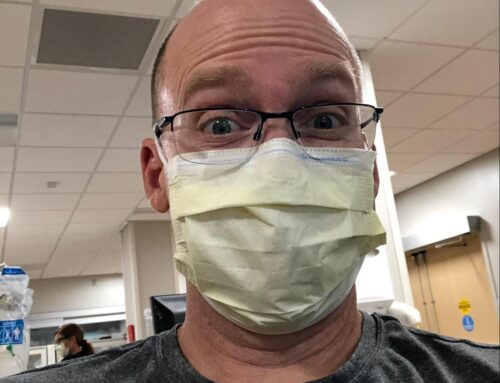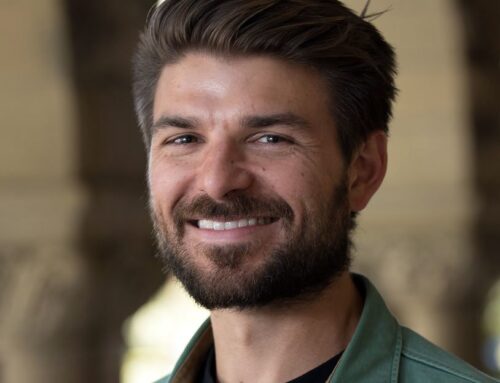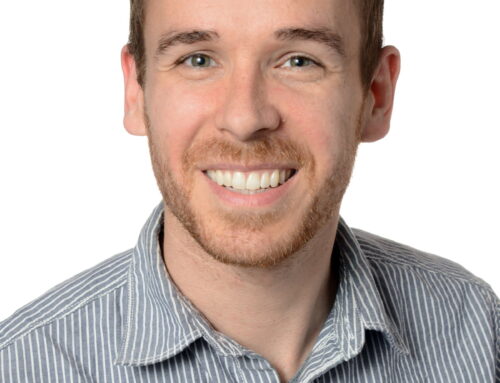Dr. Ian Julie is an emergency physician based out of UC Davis Medical Center. He is currently an Assistant Professor of emergency medicine, Director of the Medical Simulation Fellowship, and Interim Director of UC Davis Center for Virtual Care. Dr. Julie keeps well by taking an active role to incorporate activity and make healthy choices in his daily life. His approach of “talking things out” with his patients, is a form of therapy we should try. Here’s how he stays healthy in EM!
- Name: Ian Julie

- Location: UC Davis Medical Center
- Current job(s): Assistant professor of Emergency Medicine. Medical Simulation Fellowship Director. Interim Director UC Davis Center for Virtual Care.
- One word that describes how you stay healthy: Variety
- Primary behavior/activity for destressing: Gym-based cardio
What are the top 3 ways you keep healthy?
- Solid sessions of cardio between daily activities
- Eating healthy (when I have the discipline)
- Slowly replacing bad habits with outdoor activities
What’s your ideal workout?
Ideal would be a great hike, river rafting, biking, or skiing. But those occasions are rare. So now I settle for 60 minutes of uninterrupted running, biking, rowing, or swimming (and alternate between them) 4-5 times/week. I try to get that action in during the day at the hospital, typically between meetings, before meetings, or before a swing shift. I tend to make it aggressive and if I have time, I’ll add in some light weight lifting. During this time, I typically listen to podcasts, which I find are great for relaxing.
I don’t do the early AM workouts, as I don’t have the discipline and can’t sacrifice the sleep. I don’t workout at the end of a work day, as I’d much rather hang with the family. Sometimes we bike or run together in the evenings, but that’s generally pretty low-intensity.
Do you track your fitness? How?
Use my phone’s note pad to record my times, but I don’t really track them. I occasionally weigh myself, but I generally regret it.
How do you prepare for a night shift? How do you recover from one?
It’s rare, almost unheard of now, to have a free day to sleep and prepare. So instead I do my usual routine, and try to get exercise in. If I have time for a 1-3 hour nap, I take it, but that’s also uncommon. When I get to work, I get caffeinated and power through.
Recovery tends to be pretty easy. When I get home, I eat a little then pass out for a few hours (ideal post-night-shift sleep for me is 10 AM to 4 PM. I’ll stretch that till 6 PM if I have another night shift that night). If I’m not going in that following night, I get up and join in on the families’ typical afternoon/evening routine. By bedtime I’m so tired that I sleep great and generally wake up the next day feeling like my circadian rhythm – or whatever’s left of it – is back in sync.
How do you avoid getting “hangry” (angry due to hunger) on shift?
I’m pretty bad about grazing. Some colleagues bring popcorn or candy and I typically indulge. But outside of that, I bring a couple pieces of fruit and a couple carrots (I’ve loved raw carrots for as long as I’ve had teeth). That’ll keep my sugar up, and fill me up when I’m getting fussy.
I also drink water. Tons of it – like 2 L/shift minimum. Mostly I do it to keep from going into renal failure, which I think nearly happened in my 2nd year of residency. But also because it makes me feel generally better, and will (hopefully) ward off the kidney stones I seem to treat daily around here.
How do you ensure you are mentally in check?
I use exercise, meditation, and music.
Whenever I’m getting moody, down, or tired, I turn to exercise. Meditation is also insanely helpful, but takes more time and discipline than I typically have now days (which is a real shame). I also talk incessantly while on shift about everything, which is a form of therapy. And music. Lots of music. I play stuff – loud stuff – while going into work, at work, and in the office.
I’ve also found it really helpful to talk to your patients causally, time and acuity permitting. Most of them are frustrated – with wait times, with being sick, with their insurance companies, and with bad interactions they’ve had with healthcare providers. I like to talk to them about these issues, to give them a chance to open up and let them know that the things that upset them also upset me. They seem to benefit from the validation, and I find sharing my feelings and frustrations rather cathartic as well.
What are the biggest challenges you face in maintaining a longstanding career in EM? How do you address these challenges?
The big threats as far as I can see are burn-out, exhaustion, and health issues.
Burnout is tough. I talk, as I was saying above, to the patients about their experience and frequently share with them my feelings, which helps. I do the same with residents, students, and other staff. More than just talking, I try to listen to what they’re thinking and feeling. This helps keep me centered and focused on why we do this great, crazy job. Academically, burnout is really hard, but my department is great about reminding us to challenge ourselves, but not destroy ourselves. I took an academic but not publish-or-perish role, and that’s helped me immensely.
Exhaustion I treat with exercise and good sleep, when I can get it. Some of my best sleep is post-night-shift. You gotta be a sleep camel – fill up when you can.
Best advice you have received for maintaining health?
Most of the “healthy mind, healthy body” clichés are true, just annoying. The best thing is to just remember how great you feel after healthy food and solid exercise. When I feel crappy, I try to push myself to pursue that.
Who would you love for us to track down to answer these questions?
Nick Sawyer
Michael Schick
Michael Ritchie




